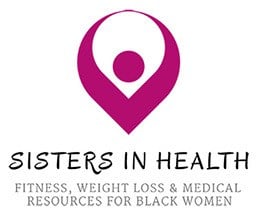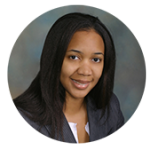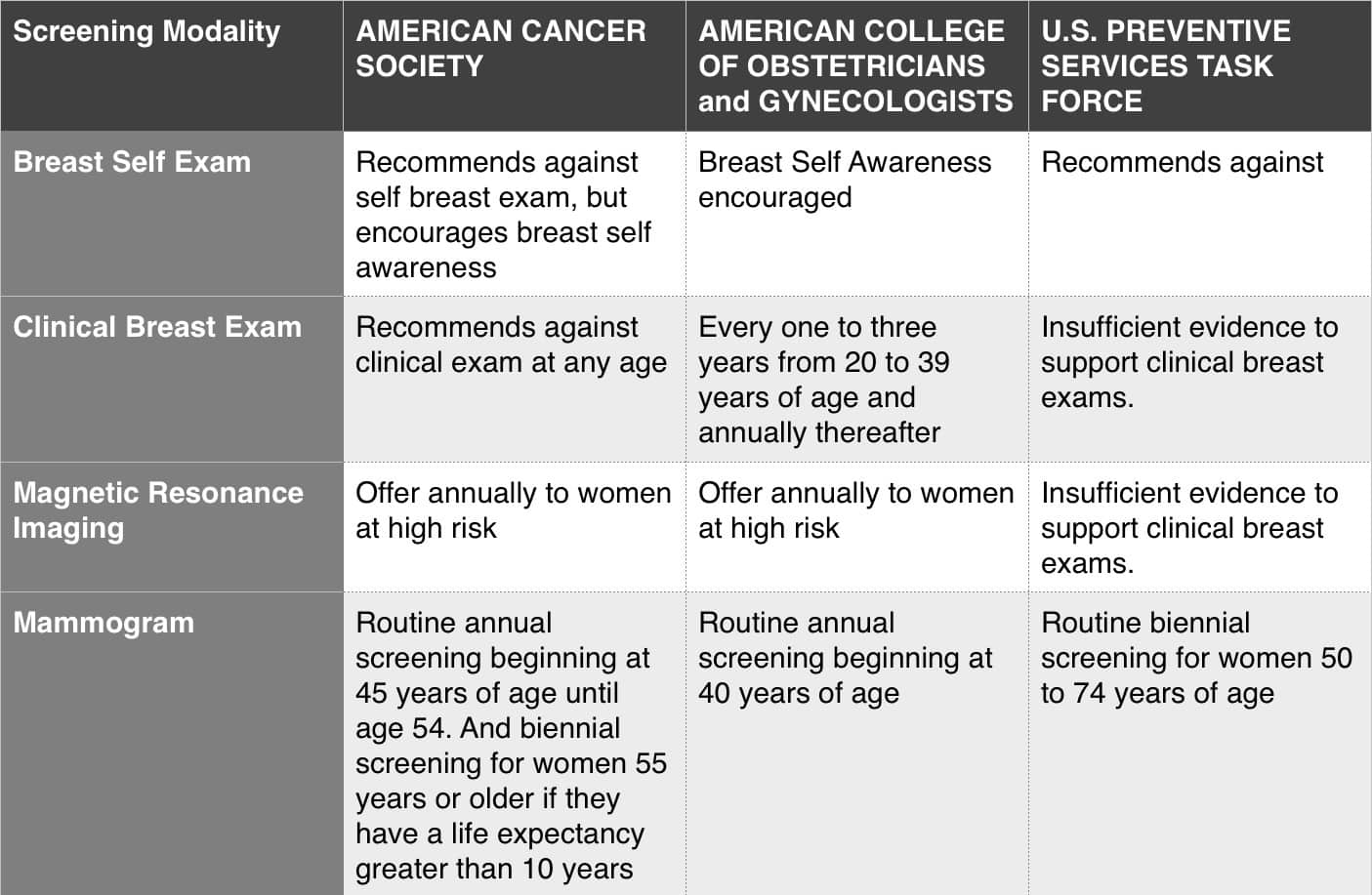What’s a woman to do? With the new screening recommendations put forth yesterday by the American Cancer Society (ACS), women are more confused than ever as to what to do. The ACS previously recommended that women have a yearly screening mammogram starting at the age of 40. The new recommendations calls for women to have mammograms starting at age 45 and yearly until age 54. And women 55 years and older should have a mammogram every other year if they have a life expectancy greater than 10 years. Also, the new ACS guidelines recommends that your physician should not perform a clinical breast exam at any age. The new ACS guidelines were designed to limit the number of false positive mammogram readings that result in unnecessary tests. The new ACS guidelines is a departure from a one-size-fits-all policy to more personalized screening.
Complicating matters, we have two other leading health organizations with different guidelines. The U.S. Preventive Services Task Force (USPSTF) recommends routine biennial screening for women to begin at age 50. Whereas the American College of Obstetricians and Gynecologists (ACOG) recommends routine annual screening beginning at age 40. Keep in mind that the guidelines are for women of average risk. A woman is considered to be of average risk if she has no personal history of breast cancer, no personal history of cancer of any type, has no genetic mutations and has no family history of breast or ovarian cancer.
The chart below compares the differences in guidelines put forth by the various medical organizations; ACS, ACOG and USPSTF.
In Summary
Let’s be clear, the recommendations are for women of average risk. Again, a women is considered average risk if she has no personal history of breast cancer, no personal history of any other type of cancer, has no genetic mutations and has no family history of breast or ovarian cancer. We now have three sets of guidelines from three medical institutions – ACS, ACOG and USPTSF each with a different starting age for mammography. This creates confusion. Women cannot navigate through this alone. It is critical that you discuss your personal history and your family history with your doctor. Together, you and your doctor can make a decision that is best for you. No matter your age, if you have breast changes that cause you concern you should discuss it with your doctor immediately. Disclose all your personal medical history. Know your family history. Remember, early detection saves lives, there is no confusion in that fact.
Lastly, it is imperative that you find out what your health plans policy is regarding early detection services.










